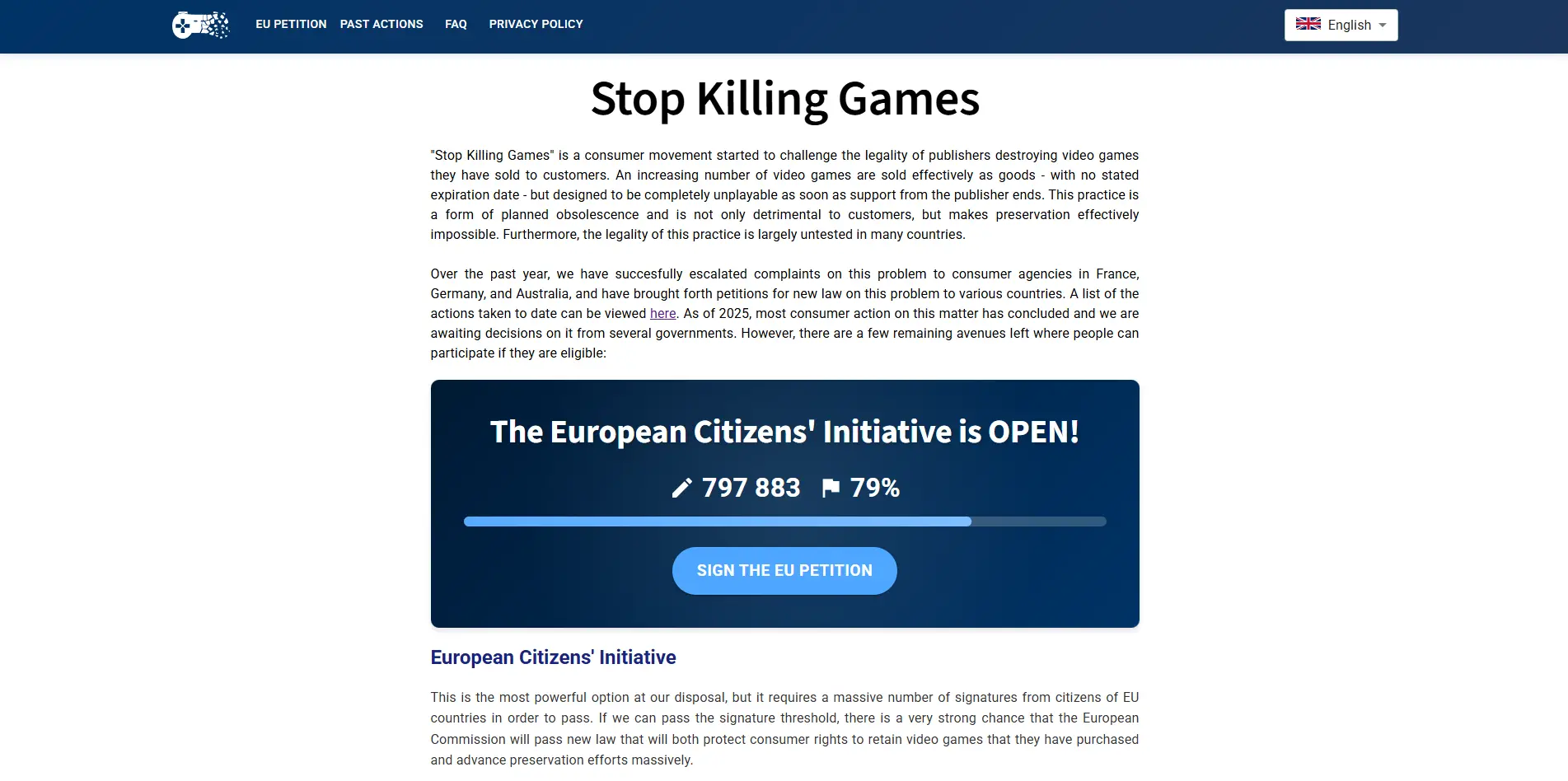A significant milestone has been reached in the ongoing struggle for digital consumer rights: the “Stop Killing Games” initiative has successfully garnered an impressive 1.4 million signatures. This widespread public endorsement now paves the way for direct dialogue with the European Union, marking a critical juncture in the push to safeguard access to purchased digital video games.
The Digital Dilemma: When Games Disappear
For years, gamers have wrestled with a peculiar form of digital ephemerality. Unlike physical media, which, once purchased, remains yours indefinitely (barring catastrophic events or, perhaps, a mischievous pet), digital games tied to online services can vanish without warning. The moment a publisher decides to shut down servers, often due to declining player counts or the launch of a sequel, players are left with nothing but a void where their investment once resided. It`s a business model that, from a consumer perspective, feels akin to buying a car only for the manufacturer to reclaim it once they stop producing spare parts.
This isn`t merely an abstract concern; it`s a recurring, tangible frustration. Prominent examples that have fueled the “Stop Killing Games” movement include the complete eradication of the original Overwatch, which was supplanted by its sequel, and the total shutdown of Ubisoft`s online racing game, The Crew. In these instances, players who had invested hundreds of hours and considerable funds into these titles found their access abruptly terminated, transforming their `ownership` into a mere temporary license. This is precisely the kind of digital disenfranchisement that fuels the widespread discontent.
Ross Scott: The Catalyst for Change
At the heart of this formidable movement is YouTube content creator Ross Scott, known for his incisive commentary on game industry practices. It was his persistent advocacy and clear articulation of the problem that galvanized a global community of gamers. Scott`s ability to translate complex legal and technical issues into understandable terms resonated deeply, turning individual grievances into a unified, powerful voice. The 1.4 million signatures are not just numbers; they represent a collective demand for accountability and a fundamental re-evaluation of digital consumer protection.
The Path to Brussels: Preparing for Dialogue
With the petition threshold met, the “Stop Killing Games” team is now meticulously preparing its case for the European Union. This isn`t just a casual conversation; it`s a serious endeavor requiring a robust legal and analytical framework. The objective is clear: to establish mechanisms that ensure the enduring availability of digital content. This could involve exploring various regulatory avenues, such as requiring publishers to release offline versions of games, maintaining server infrastructure for a guaranteed period, or even mandating the release of source code to the public domain if official support ceases.
The European Union, with its history of robust consumer protection laws, presents a unique and powerful platform for this discussion. Should the initiative succeed in influencing EU policy, the implications could be far-reaching, setting a precedent not just for the gaming industry but for all forms of digital content where `ownership` is increasingly murky.
Looking Ahead: A New Era of Digital Rights?
The impending dialogue between the “Stop Killing Games” initiative and the EU is more than just about saving old games; it`s about defining the future of digital property rights. It challenges the industry`s long-held assumption that digital goods are merely licensed services, not purchased assets. The outcome of these discussions could fundamentally reshape how consumers interact with, acquire, and retain their digital media, pushing for a future where a game truly remains yours after purchase — a concept that, for many, is simply common sense. This movement is a clear signal: gamers are ready to fight for the longevity of their digital libraries, asserting that `owning` something digitally should mean just that.

